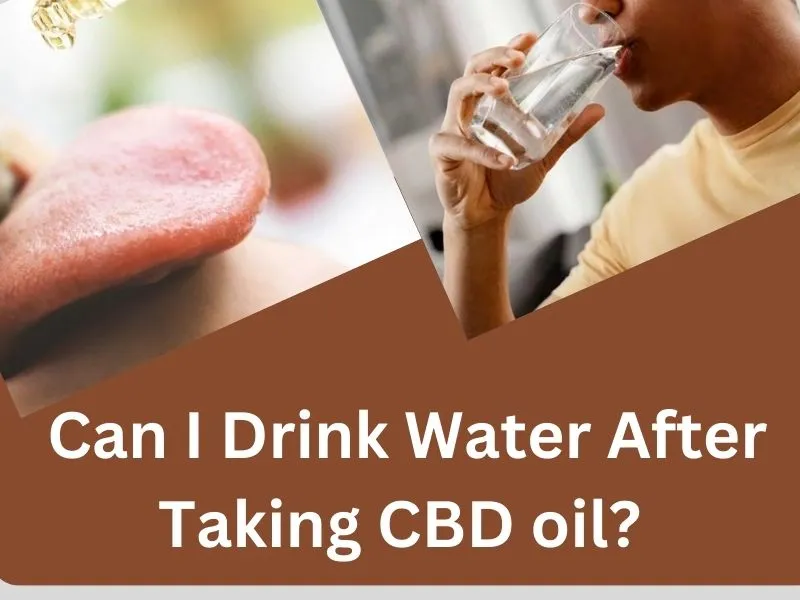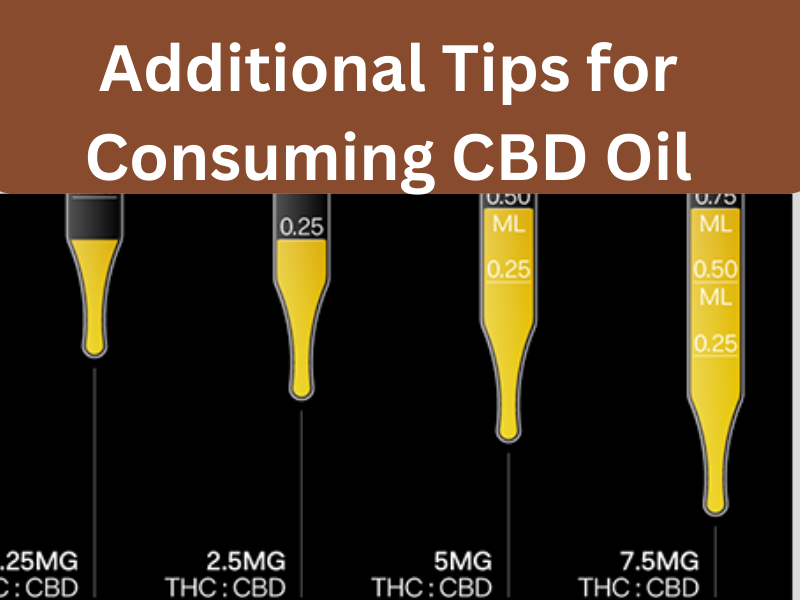How long after taking CBD oil can I drink water?
Welcome to today’s blog post! We will delve into an intriguing topic that has been gaining popularity in recent years – the consumption of cannabidiol (CBD) oil. One question that often pops up is, “How long after taking CBD oil can I drink water?” You’d be surprised how such a seemingly simple query can open up a lengthy discussion about the effective use and understanding of CBD oil.
Can I drink water After Taking CBD oil?
Avoid consuming water immediately after use is recommended for optimal CBD oil effectiveness. CBD oil is widely used for various reasons, as it possesses anxiolytic and analgesic properties that make it highly effective in alleviating anxiety, stress, and physical discomfort. However, when water is consumed immediately after taking CBD oil, it can hinder the process of CBD absorption into the bloodstream. This interruption is particularly impactful when CBD is ingested orally, as it interferes with its proper breakdown and absorption.
Before we go any further, let’s take a quick look at CBD. CBD is a natural compound derived from the cannabis plant, particularly hemp, which contains less than 0.3% THC (tetrahydrocannabinol), the psychoactive compound that gives marijuana its “high” effect. CBD is highly praised for its potential health benefits, which encompass a wide range of advantages. These may include anxiety reduction, sleep improvement, and pain management.

CBD Oil and Water Consumption
Now, back to our initial question. The answer, in brief, is that you can drink water immediately after taking CBD oil. There is no required waiting period. However, the reasoning behind this question is worth exploring to help understand CBD oil’s best practices.
Absorption and Effectiveness
The main reason people ask about the timing of water consumption after taking CBD oil relates to absorption. CBD oil is typically taken sublingually, placing it under the tongue. The area under your tongue is loaded with tiny blood vessels, allowing the CBD to enter your bloodstream more directly and quickly. Holding the CBD oil under your tongue for approximately 60 to 90 seconds before swallowing is recommended for optimal absorption. This allows the CBD to be effectively absorbed into the bloodstream. Drinking water immediately after placing the oil under your tongue might wash away the CBD oil before it has been fully absorbed.
In terms of effectiveness, this process does not necessarily mean that drinking water after swallowing the oil will dilute it or reduce its effects. Once the CBD oil has been absorbed and swallowed, it goes through the digestive process and is metabolized by the liver. Drinking water can aid in digestion and support overall body function.
Hydration and CBD Oil
Hydration is critical for overall health and well-being. Drinking adequate water daily supports digestion, nutrient absorption, and cellular health, among other things. There is currently no scientific evidence to support the notion that CBD oil disrupts the absorption process. Therefore, maintaining average water consumption when using CBD oil is recommended.
WHAT HAPPENS IF YOU DRINK WATER TOO SOON
In the case of CBD oil, the most common ways to take it are orally or sublingually (under the tongue). If you’re taking CBD oil sublingually, you’d want to let it sit under your tongue for approximately 60-90 seconds to allow the CBD to be absorbed directly into the bloodstream through the mucous membranes. Drinking water too soon after taking CBD oil sublingually could wash away the oil before it’s fully absorbed, possibly reducing its effectiveness.
In the case of certain other medications, particularly those that can irritate the stomach or esophagus, it might be advised to drink a full glass of water when taking them to help ensure they are entirely swallowed and don’t linger in the throat. Some medications may also be more effective if absorbed in the intestines rather than the stomach, and drinking water could help move them along more quickly.
Always consult your healthcare provider or a pharmacist for advice on taking any specific medication or supplement, including whether drinking water afterward is advisable.
The type of CBD you’re also taking matters
The type or form of CBD you are taking also plays a significant role. The absorption rates and bioavailability can differ significantly among various CBD forms, which include oils, tinctures, capsules, edibles, and topical applications.
For instance, sublingual CBD oils or tinctures are typically absorbed more quickly when placed under the tongue, allowing for faster onset and potential effects. In contrast, CBD edibles may have a longer onset time for their impact to be felt, as they require digestion before the CBD can be absorbed into the bloodstream.

It’s essential to consider the specific instructions and recommendations provided by the manufacturer of the CBD product you are using. They can guide the optimal way to take the CBD product to maximize its effectiveness and desired outcomes.
Suppose you have any concerns or inquiries regarding the specific CBD product you are using and its potential effects. In that case, seeking advice from a healthcare professional or contacting the manufacturer directly for additional clarification is recommended.
CAN WATER Drinking REDUCE THE EFFECTS OF CBD OIL?
The effect of water consumption on the absorption or effect of cannabidiol (CBD) oil isn’t completely understood.
However, it’s essential to note the following:
- Hydration: Staying hydrated is generally essential for overall health and can aid in the body’s ability to process and metabolize substances, including CBD oil.
- Digestive health: Water can aid digestion and facilitate the body’s absorption of substances like CBD oil.
- Side Effects: Some people may experience dry mouth as a side effect of CBD oil. Drinking water can help alleviate this symptom.
However, drinking water, in and of itself, is unlikely to significantly reduce or enhance the effects of CBD oil directly. The liver metabolizes CBD, and its products are primarily determined by factors like dosage, method of administration (oral, sublingual, topical, etc.), individual body chemistry, and possibly the presence of food in the stomach, among others.
ALL CBD OIL IS NOT CREATED EQUALLY
Absolutely correct. All CBD oil is not created equally. Various factors play a role in determining the quality and effectiveness of CBD oil. These factors encompass:
- Source of Hemp: The quality of the hemp plant from which CBD is extracted significantly influences the quality of the final product. Hemp is a bio-accumulator, which means it absorbs substances from the soil it’s grown in, including beneficial elements as well as potential contaminants like heavy metals and pesticides.
- Extraction Method: The method used to extract CBD from hemp can affect the quality of the final product. Some ways can leave behind harmful residues, while others (like CO2 extraction) are cleaner and yield a purer result.
- Full Spectrum vs. Broad Spectrum vs. Isolate: Full-spectrum CBD contains all cannabinoids, terpenes, and flavonoids found in the hemp plant, including THC (though in the US, legal CBD products must have less than 0.3% THC). Broad-spectrum CBD has all the same components as full-spectrum, but with the THC completely removed. CBD isolate contains only CBD, with all other parts removed. Each type offers different potential benefits and drawbacks.
- Third-Party Testing: Reliable CBD oil manufacturers often use third-party labs to test their products for potency, purity, and safety. This ensures that the product contains the amount of CBD it claims and is free from harmful contaminants.
- Brand Reputation: The brand’s reputation can also indicate the quality of CBD oil. Brands that are transparent about their practices, provide third-party testing results and have positive reviews are often more trustworthy.
- Other Ingredients: The carrier oil and any added ingredients can also influence the quality and effectiveness of CBD oil. For example, some CBD oils may contain additional herbs or supplements for added health benefits.
So, you’re right: all CBD oils are not created equal. Researching and choosing a product carefully is essential to ensure it’s safe and potentially effective for your needs. Always consult a healthcare provider for advice, especially if you have underlying health conditions or take other medications.
Additional Tips for Consuming CBD Oil

Finding the Right Dosage
Determining the correct dosage is one of the most critical aspects of using CBD oil effectively. Because everyone’s body is different, there is no one-size-fits-all dose. It’s recommended to start with a lower amount and gradually increase it until you find what works best for you.
Consistency is Key
CBD oil works best when taken consistently. It’s not a quick fix; its effects are usually felt over time, so consistency is crucial.
Interactions with Other Medications
Before starting CBD oil, speaking with a healthcare professional is essential, especially if you’re currently taking other medications. CBD can interact with certain medications, potentially affecting their efficacy.
Dosage Recommendations of CBD oil
Determining the proper dosage of CBD oil can be influenced by various factors, including body weight, the specific condition being treated, the concentration of CBD in the oil, and overall health. As a result, no universal dosage works for everyone, and what may be effective for one person may be different for another.
It is recommended to start with a low dose and gradually increase it over time until the desired effects are achieved. This process, known as “titration,” allows for finding the optimal dosage for an individual. A standard guideline is, to begin with a small daily dose, such as 5-10 mg, and then adjust as necessary after a week or so. In some cases, higher doses of up to 1,500 mg per day or more may be required, but it is crucial to consult a healthcare provider when considering such higher doses.
CBD oil often comes with a dropper that facilitates precise milligram measurement, aiding accurate dosing.
It’s important to note that while CBD is generally well-tolerated, it can have side effects, particularly at higher doses. These side effects may include fatigue, diarrhea, appetite changes, and weight variations.
Additionally, CBD can interact with other medications, especially those with a “grapefruit warning.” If you are taking other medications, it is crucial to consult with a healthcare provider before introducing CBD to your routine.
Furthermore, it’s essential to be aware that the FDA does not currently regulate CBD products, resulting in variations in quality and potency. To ensure reliability, purchasing CBD products from reputable sources and looking for those that have undergone testing by third-party laboratories is advisable.
Ultimately, seeking guidance from a healthcare provider to discuss your specific circumstances and determine an appropriate CBD dosage for your individual needs is highly recommended.
Can You Overdose on CBD?
CBD is generally considered safe and well-tolerated, even at high doses. However, taking extremely high doses of CBD can lead to side effects like fatigue, diarrhea, changes in appetite or weight, and potential interactions with other medications. It’s always advisable to consult a healthcare provider when considering new supplements, especially in high doses.
FAQS
How long after CBD oil can you eat or drink?
When using CBD through vaping, oral consumption, or topical application, there is no need to alter your water-drinking habits as it does not disrupt absorption. However, if you are consuming CBD sublingually with a tincture, it is advisable to allow the tincture to be absorbed for a minimum of 30 to 60 seconds before consuming any liquids. This waiting period ensures optimal absorption before drinking anything.
Can you drink water straight after CBD Oil?
Fortunately, you can freely drink water after your body has absorbed the CBD oil, even if you have taken it sublingually. Drinking water or consuming food will not interfere with the effectiveness of CBD, particularly when taken sublingually. Sublingual intake allows for rapid absorption of CBD into the bloodstream, ensuring quick and efficient results.
What is the fastest way to absorb CBD Oil?
Opting for sublingual absorption of the CBD product, where you let it absorb under your tongue instead of going through the digestive system, helps retain a greater amount of CBD and leads to faster results. Compared to edible products, sublingual products have a quicker onset of effects. If you desire faster results, choosing the sublingual route is recommended.
Conclusion
CBD oil is a fascinating and powerful natural supplement that offers a wide range of potential benefits. If you’re contemplating incorporating it into your health and wellness regimen, you must know best practices to optimize its effects and ensure safe and effective usage. A straightforward technique to remember is drinking water, which can contribute to maximizing the benefits of CBD oil.
When taking CBD oil orally, you can drink water immediately after swallowing it without any issues. However, if you’re holding the oil under your tongue for absorption, you should refrain from drinking anything during that time to enhance absorption.
Lastly, remember to stay hydrated in general. Drinking enough water is crucial for overall well-being and can complement CBD oil’s positive effects. Your body will appreciate the hydration and reap the benefits accordingly.

